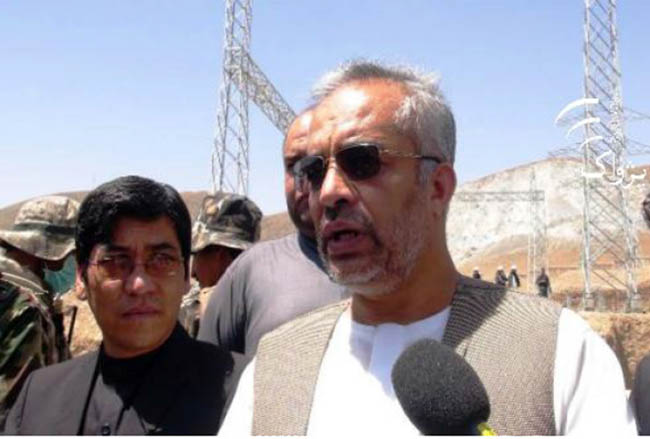GHAZNI CITY - Residents of the capital of southern Ghazni province complain about the high tariff of government-supplied electricity, saying many families are unable to pay bills.
Mohammad Sarir, an inhabitant of Ghazni City, told Pajhwok Afghan News the price of electricity was very high in the province. People were obliged to use solar power, he said.
He said a kilowatt of government-supplied electricity cost 35 afghanis ($0.5) and most of residents were unable to pay that tariff. “The economic condition of our people is very bad, most of them cannot pay such inflated bills.”
Rahmatullah, another resident of the provincial capital, held a similar view. He said most of government departments in the province had become fiefdom of strongmen.
He alleged that the present power utility head, who had been in office for 10 years, kept the electricity prices high and power distribution limited. “If provided electricity, Ghazni residents would be able to build factories and have job opportunities.”
A number of other residents of the province have similar complains.
Governor Abdul Karim Matin confirmed the problem, saying a kilowatt of electricity in other provinces of the country cost only three afghanis, a much lower amount than the 35 afghanis charged in Ghazni.
He explained the power tariff could not be reduced until Ghazni was supplied imported electricity.
Matin said he had discussed the problem with government officials, who had promised the issue would be resolved to a large extent in the province during the current solar year.
Da Afghanistan Breshna Sherkat (DABS) head in Ghazni confirmed that a kilowatt of electricity cost 35 afghanis. “Our electricity supply in Ghazni is based on diesel, so we cannot reduce the price anymore,” he argued, saying only 27 percent of Ghazni City residents had access to government-supplied electricity.
More than half of residents have seven hours access and the rest 24 hours access to the service. There is no government-provided electricity service in districts and people there use solar power. (Pajhwok)
Home » Afghanistan » Ghazni Residents Grumble about High Power Tariffs
Ghazni Residents Grumble about High Power Tariffs

